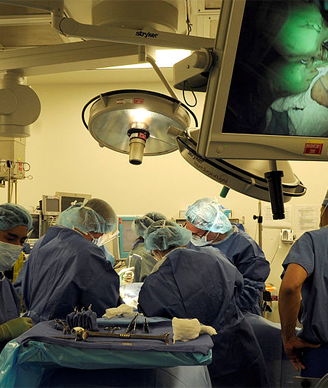Opting for Double Mastectomy May Mean More Complications
Although the overall likelihood for complications after a mastectomy are rare, women who undergo a double mastectomy may experience higher complication rates.
Women who opt for a double mastectomy may be opting for more complications.

Although the overall likelihood for complications after mastectomy are rare, those women who choose to undergo a double mastectomy may experience a higher rate of certain surgical complications, according to a study (Abstract 62) to be presented at the American Society of Clinical Oncology (ASCO) Breast Cancer Symposium.
“We think this information is critical to guide women contemplating having a double mastectomy,” lead author Mark Sisco, MD, clinical assistant professor of surgery at the University of Chicago Pritzker School of Medicine said at a press conference held ahead of the meeting. “While generally very safe, double mastectomy definitely increases the rate of certain complications, and while each woman is going to interpret these findings differently, they should be discussed and considered.”
According to Sisco, data shows that women with a single breast cancer are increasingly opting for double mastectomies despite evidence showing that survival is not improved with this procedure. This decision may be made for a variety of reasons, he said, including peace of mind, a desire for symmetry, or the ability to forgo mammograms.
However, there are few data on whether or not opting for a double mastectomy has any negative effects. In this study, Sisco and colleagues examined perioperative outcomes in women undergoing bilateral mastectomy with reconstruction compared with unilateral mastectomy with reconstruction. The study did not look at women undergoing prophylactic mastectomy.
Using data from the American College of Surgeons National Surgical Quality Improvement Program, the researchers identified 18,229 women with breast cancer treated with mastectomy, 35.7% of which had a bilateral procedure (n = 6,502), and compared 30-day complication rates.
Of the identified patients, 88.6% undergoing bilateral procedure and 79.4% undergoing unilateral procedure chose to have implant-based reconstruction. Among those patients, a bilateral procedure was associated with a significantly higher rate of implant loss (1.0% vs 0.7% for unilateral). In addition, patients undergoing bilateral mastectomy with reconstruction had significantly higher rates of transfusion (0.8% vs 0.3% for unilateral) and reoperation after implant (7.6% vs 6.8% for unilateral).
Among those patients who underwent autologous reconstruction, the rate of transfusion was also significantly higher among women who had a bilateral procedure (7.9%) compared with a unilateral procedure (3.4%).
The researchers found no difference between the procedures for myocardial infarction, pneumonia, kidney failure, stroke, urinary tract infection, or blood clots.
Commenting on the results of this study, Harold J. Burstein, MD, PhD, FASCO, associate professor of medicine at Harvard Medical School, pointed out that overall the rate of serious complications for these procedures remains quite low.
“At the same time there is an increased risk of some rather potentially serious problems including infection, the possibility for the need for implant removal, and the need for blood transfusion,” Burstein said. “This is some of the first data we have seen that allows the surgical team to quantify for a woman who is deciding between single and double mastectomy what exactly the risks of the larger double operation might be.”